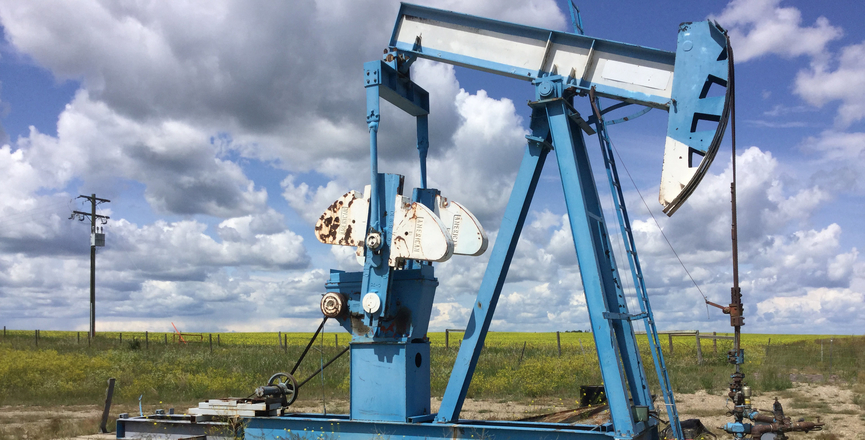Governments worldwide have been neglecting the social costs of freeing corporations to provide public services, or licensing corporate ownership and exploitation of natural resources.
The neglect of public safety regulations has become increasingly evident as officials scramble to protect elderly citizens from the coronavirus and reduce greenhouse-gas emissions.
In the context of formulating a green “post-COVID-19” agenda, and achieving climate change targets, protecting Canadians against social costs imposed by corporations will be of major importance.
Relying on the private marketplace to replace public administration and government regulation was supposed to produce cost efficiencies. Instead, because the income and revenue statements of profit-seeking companies do not include the social and environmental costs of their activities, the real costs soar … and the public gets the bill.
While air pollution, unsafe workplaces and toxic chemical wastes are corporate generated, the hospital cases and environmental cleanups — the external costs — have to be dealt with by governments.
A dramatic instance of uncovered social costs was provoked by the COVID-19 pandemic when preventable deaths struck in long-term care facilities and retirement homes in Ontario and Quebec.
Author and journalist Nora Loreto has researched and prepared a detailed list of fatalities, and where they took place. Her calculations show that over 80 per cent of Canadian deaths attributable to the coronavirus have occurred in long-term care or retirement homes. Many of these are privately run for profit. None are included in funding under Canadian health accords, and too many are not subject to government inspections.
Corporations measure success by their rate of return on investment. Capital investors calculate investment risks based on market prices.
For instance, PSPIB Destiny Inc., a subsidiary of the Canadian Public Sector Pension Investment Board, is the sole owner of Revera long-term care and retirement homes. The Revera mandate is to improve earnings for the shareholder. Judging by the 85 court cases CBC reported Rivera was facing over a year ago for neglect of the elderly, its concern over how its residents are treated was secondary at best.
Governments have a broad role to insure citizens against predicable social risks. When people get sick or injured, and lose their jobs, they need access to public health care, otherwise they cannot afford treatment.
The principle of social insurance operates in education: how costly is an uneducated citizenry for democratic life? What happens to an economy when citizens cannot read, write or do math?
Basing the funding of post-secondary education on students taking out personal loans has made market pricing of learning prevail, and weakened the intergenerational bargain whereby each generation contributes to the education of the succeeding one through progressive taxation.
Governments can and do provide social insurance effectively for events that change lives. At age 65, citizens are eligible for small pensions. Mothers who give birth get maternity leave and child benefits are paid to families.
There is no good reason to neglect the social benefits of early childhood education. Governments cite market prices to claim investing in child care is (too) expensive. Expensive? Going without universal child care costs all Canadians the value of the work done by child care providers, and the work done by mothers returning to the workforce.
Deregulating and turning management and ownership of seniors facilities over to corporate style profit calculations mispriced the risk to lives of retired citizens. Similar policies adopted in the energy sector endanger the planet.
The Canadian oil and gas sector has long been integrated into a North American energy market. Unlike all other major petroleum-producing countries, where the resources are publicly owned and exploited, in Canada and the United States private markets prevail, with foreign U.S. ownership a main feature of the Canadian industry.
While the private oil and gas sector has undertaken massive investments and produced high profits, it now comes out that it has left behind enormous public liabilities in the form of uncapped wells emitting climate altering methane gases.
The immediate impact of methane gas emissions on the atmosphere is far more deadly than carbon dioxide (CO2). According to the Sightline Institute, methane “traps atmospheric heat 87 times more effectively than CO2.” Estimates of the liabilities left behind in Alberta by private owners walking away from uncapped wells range from $40 billion to $70 billion.
The cost of exploiting oil and gas as energy sources is poorly captured by the price of gasoline or home heating charges because the use of these resources has an impact on the environment through global warming, air pollution, and groundwater destruction that is not captured by the price at the pump or the monthly heating bill.
The COVID-19 pandemic has revealed once again that governments have a lead role to play in protecting citizens. When corporate pricing is relied upon for services delivery, too often the social costs get pawned off onto unfortunate citizens and communities.
In rethinking the approach to both health services and energy, the full picture of what is at stake must take priority over the profit and loss statement approach that corporations press governments to adopt.
Duncan Cameron is president emeritus of rabble.ca and writes a weekly column on politics and current affairs.
Image: Government of Alberta/Flickr



